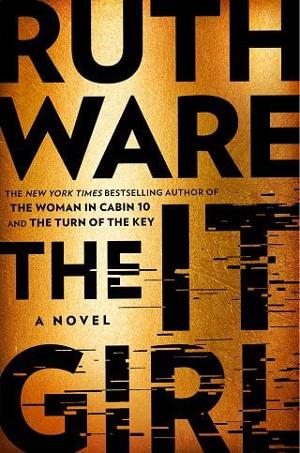Chapter 32: After
AFTER
On the train back to Edinburgh she sits and stares out the window, replaying Ryan’s words over and over. Is this a joke?
A pregnancy test. A positive pregnancy test.
It’s nothing she didn’t know from her conversation with Geraint, but somehow, hearing it from Ryan’s mouth…
Was it real?
She could have drawn it on with a… with abiro for all I knew.
Fuck. Fuck. She rubs her face. Part of her wants to scrub away the memory of the conversation and all the poisonous suspicions it’s stirred up, but she knows she can’t. Not just because she can’t think of anything else, but because even if she were given the choice of magically erasing Ryan’s words from her memory, she wouldn’t do it. She can’t let this go. Because whether or not it’s true, whether or not even April, inveterate practical joker, would have been cruel enough to play this unforgivably harrowing hoax on Ryan, it is a missing piece of the puzzle which has finally turned up, out of the blue, throwing the whole existing pattern out of alignment.
A positive pregnancy test—real or not—is exactly what was missing from the case against Neville. It is a motive. And not just for Ryan. It’s a motive for Will, and for anyone else who was sleeping with April.
Hannah remembers again the noises coming from behind that closed bedroom door, the morning after the premiere of April’s play. And, more than ever, she wishes that she had stopped, pulled back that door, and put a face to whoever was in there.
Because it wasn’t Ryan, that much she is sure of, or at least as sure as she can be without asking him outright. Not just because of the way he reacted on the first night of the play, pulling away from April as if reluctant to touch her, but because of what he said in their conversation just now. She texted me the morning after that first night. If April were in bed with Ryan, why would she text him with the news just an hour or so later? It wouldn’t be plausible—to go from carefree noisy sex to a pregnancy test in a single morning. Ryan wouldn’t have been taken in, he would have wondered why she hadn’t raised her worries just an hour or so earlier.
But if it wasn’t Ryan, then who?
Will is the next most obvious candidate. But Hannah isn’t sure about him either. There was something wrong, that night at the play. Some kind of reserve or antagonism between him and April that didn’t seem to mesh with the loud, performative sounds coming through the wall the following morning. And, though it makes her flush to think of it, Hannah knows what Will sounded like—sounds like—during sex, both now and then. She watches the countryside rippling hynotically past the window, thinking about her husband—thinking about the way he holds himself over her, bracing his weight on his forearms, staring into her eyes, silent, concentrated, attentive. He doesn’t whimper and grunt and thrash about like someone in a blue movie.
Why. Why didn’t she stay behind that morning? Why didn’t she curl up and wait in the living room armchair to see who exactly came out of April’s bedroom?
Why didn’t she confide in April what had happened?
Because she was traumatized, and in denial. Because she was recovering from—and now ten years on, she can say the words, without feeling they are too strong—an assault. And because she didn’t know. She had no idea how important that question would become. She didn’t know that many years later, so much would end up hanging on it. Her happiness. Her future. Her marriage.
It is at that moment that the train goes into a tunnel and momentarily loses power. The lights in the carriage go out—just for a second—and it’s then that Hannah feels it. Something just below her belly. A flutter, like a bubble popping, or an elastic band snapping, or something small and slippery and feathered rippling inside her.
She goes utterly still. She doesn’t even breathe.
And then the train comes out of the tunnel and the carriage is flooded with light again and she is left, sitting perfectly still, her hand over her stomach, iridescent with happiness. And for the first time since John Neville died, she isn’t thinking about April, or the past, or the fact that she may have condemned an innocent man to die in prison.
She is thinking about her baby, and the new life inside her. And her happiness is so intense that it hurts.
 Fullepub
Fullepub 



